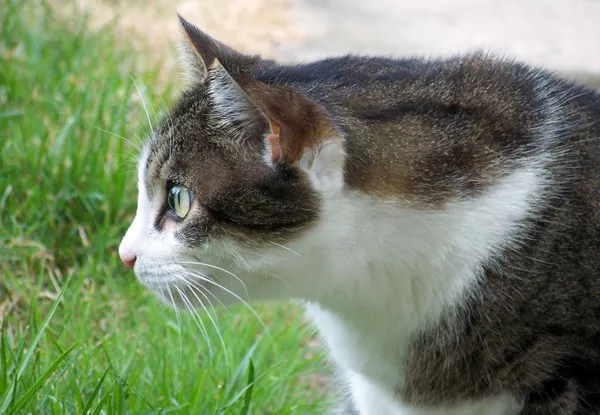Joey, a beloved 16-pound cat, was a constant companion to his owner, Michelle Sopczak, in Sidney, B.C.
“He was a big mama’s boy,” Sopczak shared with Global News. “He’d wait for me at the door, miaowing like a dog, always cuddling and purring when I patted him.”
Adopted when he was just nine months old, Joey spent almost seven years as Sopczak’s faithful companion. However, last week, Joey tragically passed away after ingesting methamphetamine that had been discarded in the neighborhood.
On Tuesday evening, Joey went outside as usual, but when Sopczak saw him the next morning, something seemed wrong. “He was panting with his mouth open, looking stunned at the gate in the backyard,” she recalled. Joey refused to come inside, and when her husband brought him in, the cat was visibly distressed, crying, and delirious with dilated pupils.
Initially thinking it might be from stress, Sopczak rushed Joey to the vet after only 30 minutes. Tests revealed methamphetamine in his urine. “I was overwhelmed with grief and anger,” Sopczak said, devastated by the sight of her cat’s suffering.
Joey spent three days in the ICU at the Central Victoria Veterinary Hospital, with his fever eventually subsiding. However, upon returning home, Sopczak noticed Joey’s back legs were barely functioning, and he struggled to walk. The vet soon discovered that the methamphetamine had caused a blood clot in his legs, cutting off circulation and causing his paws to turn purple.
Faced with no hope for recovery, Sopczak made the difficult decision to put Joey down. “He’d been through enough,” she said. The veterinary bill came to $3,200, prompting Sopczak to set up a GoFundMe campaign to help cover the costs. She expressed gratitude for the comforting messages she’s received from people moved by Joey’s story.
In response to the tragedy, Sopczak is putting up signs in her neighborhood with the message: “Meth poisoning killed my pet,” warning others about the dangers of discarded drugs. She is also advocating for stricter drug laws, calling for change in how open-air drug markets are regulated.
“I think our drug laws need to change. We can’t just let people use drugs wherever and whenever they want,” Sopczak said, determined to prevent others from experiencing the same heartbreak.
Related Topics



























